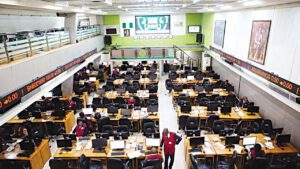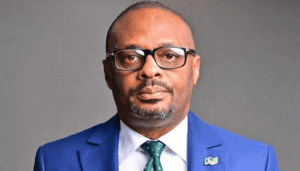ACMAN scholars anticipate higher MPR to save Naira from further depreciation
The Association of Capital Market Academics of Nigeria (ACMAN) suggests that the Central Bank of Nigeria (CBN) should raise the Monetary Policy Rate (MPR) above the current 18.5 per cent to support the Naira float and attract foreign capital inflows.
The dilemma faced by the CBN is that increasing interest rates to attract foreign capital may also lead to higher inflation, which is already at a high rate of 22.41 per cent.
To sustain stability in the forex market, Nigeria needs to diversify its export base, grow its industrial sector, and leverage opportunities by setting up diaspora commissions.
Scholars in the capital market, represented by the Association of Capital Market Academics of Nigeria (ACMAN) have said that the Central Bank of Nigeria (CBN) will need to increase the Monetary Policy Rate (MPR) further from the current 18.5 per cent to support the Naira float.
ACMAN President, Professor Uche Uwaleke, said in an interview on Arise television, that the MPR increase is necessary to attract expected foreign capital inflows into the country.
“I see a situation in which the CBN can only support this Naira float by increasing our MPR further from the current 18.5 per cent,” Uwaleke said.
“Because if we don’t increase rates, we are not going to have the expected capital inflows.”
Uwaleke noted that the CBN is facing a dilemma, as it needs to raise interest rates to attract foreign capital, but this will also lead to higher inflation.
“You see, that is the dilemma, and of course, you know, the inflation rate today at 22.41 per cent is quite high.”
“Returns in the country today are in negative territory. We have real negative rates of return and for investors to be attracted to invest in the country; we must raise your rates,” Uwaleke said.
Uwaleke also warned that Nigeria could face the same problems as Egypt, which has not recovered from the currency float it embarked on several years ago.
“If you check the exchange rate of the Egyptian pound to the dollar, it is 30 Egyptian pounds to $1,” Uwaleke said.
“And what IMF telling them now is that they have not done enough of it, they have been managing it, that they should proceed to what they call a durable, flexible exchange rate, in other words, that they should make it permanent because again, they are asking for another line of credit from the IMF.”
Uwaleke said that the only way Nigeria can sustain stability in its forex market is to diversify its export base and grow its industrial base.
“I have had people talk about also going to IMF to take credit facility,” Uwaleke said. “We should not be thinking about going to IMF to take any facility.
“We still have $34 billion, enough to finance five to six months of imports, but the way, it is being deflated, just because of what we have done, we have to work on the supply side.”
Uwaleke said that State Governments should also play a role in attracting foreign capital into Nigeria.
“There is a need to leverage the opportunities of this unification by setting up diaspora commissions. I was happy that Enugu State Government, for example, is organising diaspora and investment summits. States Government should also wake up to attract this capital into their states,” Uwaleke said.
He continued, “So far, when you read capital importation reports, it is only Lagos, Ogun, and a few of them. If State Governments will also join hands with the Federal Government to attract more capital into the country, I’m sure that probably the supply side and the liquidity issue will be addressed.”




